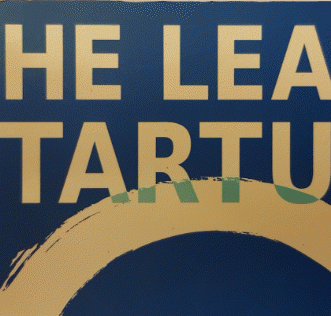
The System
A quote from Seth Godin’s blog today on algorithms: “…blaming the system isn’t going to help anyone. You are the system, we all are…”
I agree. We are the system.
The question is are we shaping it, or merely feeding it?

A quote from Seth Godin’s blog today on algorithms: “…blaming the system isn’t going to help anyone. You are the system, we all are…”
I agree. We are the system.
The question is are we shaping it, or merely feeding it?

I’ve been a just-in-time practitioner for much of my life. It’s how I used to do all my homework. Sometimes, … Read More “Just in Time”

I was tidying up my digital desktop today, and came across an old article by Umair Haque, written for HBR magaizine.
6 years after it was published, Haque’s message seems more important than ever.
If you want customers that come back to your business regularly, freely, joyfully, “focus on giving people what matters most to them — but what they feel cheated of, stymied from, and suffocated by at every turn. Improve their lives. Deliver lasting gains in their quality of life. Don’t just carrot-and-stick them into “loyalty.” Be loyal to them. Don’t win their attention — give them your attention. And one tiny interaction at a time, help them live lives richer with meaning, happiness, and purpose.”
And always be asking this question: “How loyal can we be to our customers?”

Sometimes you can’t just do, you have to think about what you’re doing.
Sometimes you can’t just think, you have to think about what you’re thinking.
Sometimes you can’t just think about what you’re doing or thinking, you have to think about how you’re thinking or doing it.
Sometimes you can’t just think about how, you have to think about why.
It would be exhausting to operate like this all the time, but every now and then, it pays to take yourself up a level or two, perhaps with the help of other people, or a book, or a video, or a podcast or a tool.
Because once you are aware of what, how and why, you can repeat your best doing or thinking, on purpose.

I like to ask big questions of accountants in my podcast.
Professor Richard Murphy has some interesting answers.
This video of his proposes a new way of financial reporting for ‘public interest entities’ – the big corporates we all depend on for infrastructure, food supply etc., that looks at the interest of all stakeholders, not just shareholders.
I think reporting this way, even if you aren’t legally required to, could give a real advantage to some smaller, more forward-thinking businesses.
If they dared to take it.
I’d love to know what you think, especially if you’re an accountant.
PS Professor Murphy has an even more interesting vision for audit.

On Tuesday I received an email from Royal Mail letting me know that a parcel I was expecting would be … Read More “Promises, promises”

Recently I’ve been thinking about (and remembering) why being ‘The Boss’ is no fun. Or at least not for me.
It’s not the hard graft, or the long hours, or the uncertainty of income. Nor is it the responsibility to clients, or the need to exceed expectations. We knew this was part of starting a business, it’s actually what we wanted – the possibility to get more out of work than the means to live.
Being your own boss is fine. It’s being boss of others, directly or indirectly, that’s difficult. Because although you can now share the physical or mental work involved in delivery, you’ve at least doubled the emotional labour, and emotional labour is harder to share out.
The first step is to recognise that it’s a big part of what gets done. Probably the most important part too.
The next step is to make it explicit, and cover it in the manual.

I’m a big fan of ‘The Lean Startup’, which I’d sum up as follows:
“The job of a startup is not to make money. It’s to find out what the market really wants.”
In other words, starting a business is about testing, refining and re-testing until you find what delivers real value, and so makes you money.
The trouble is, this can take years. There’s no shame in that. It’s just that most of us do this in an undocumented and somewhat unconscious way, internalising our findings as we go.
This means that when the time comes to expand our capacity, to meet the demand we’ve identified and finally start making the money, we struggle to communicate this vital information – who we are for, what we promise them, and how we deliver on that – to the people we need to work with, and that can lead to stunted growth.
The first step to remedying that is consciousness, which is why The Lean Startup is such a help. But what about after startup?
Here’s my solution:
Purposely design your business as a system for making and keeping promises, and improving how you do that:

That way, everyone involved in your business can stay conscious. Even after you’ve gone.

What do small business owners want?
What do small business clients want?
What do small business employees want?
We all want the same things, but the weight we give them and how we look to achieve them may vary according to the role we’re playing.
As a small business owner, you’ve probably decided that agency, autonomy and purpose are more likely to be achieved by setting up on your own, and that these things are more important to you than a regular income. Your employees may feel that mastery matters more to them, while autonomy and agency are only possible outside work, with a steady income. Your clients may gain status by spending on the things they can buy from you, or by supporting their local business community, or through the discernment they display to their peers by choosing you.
A successful business knows exactly what it delivers to all its stakeholders, and ensures that it does so consistently.
Success starts with awareness that while we all want the same things, they’re not necessarily in the same order.

I spent quite a bit of my early career being called an analyst – someone who resolves or separates things into its elements or constituent parts.
In reality, like all of us, I’m mostly a synthesist. Putting thoughts, information, ideas, anecdotes, experiences together to make a whole – a model of the world that is coherent, at least to me, hopefully to others too.
When it comes to work, here are some of the ideas (axioms? premises? prejudices?) I grapple with, trying to synthesise a useful model of what it means to scale successfully as a business:
I’m not there yet with my coherent model, but I feel like I am getting there, and I’m enjoying the process.
What would you add to/remove from my list?